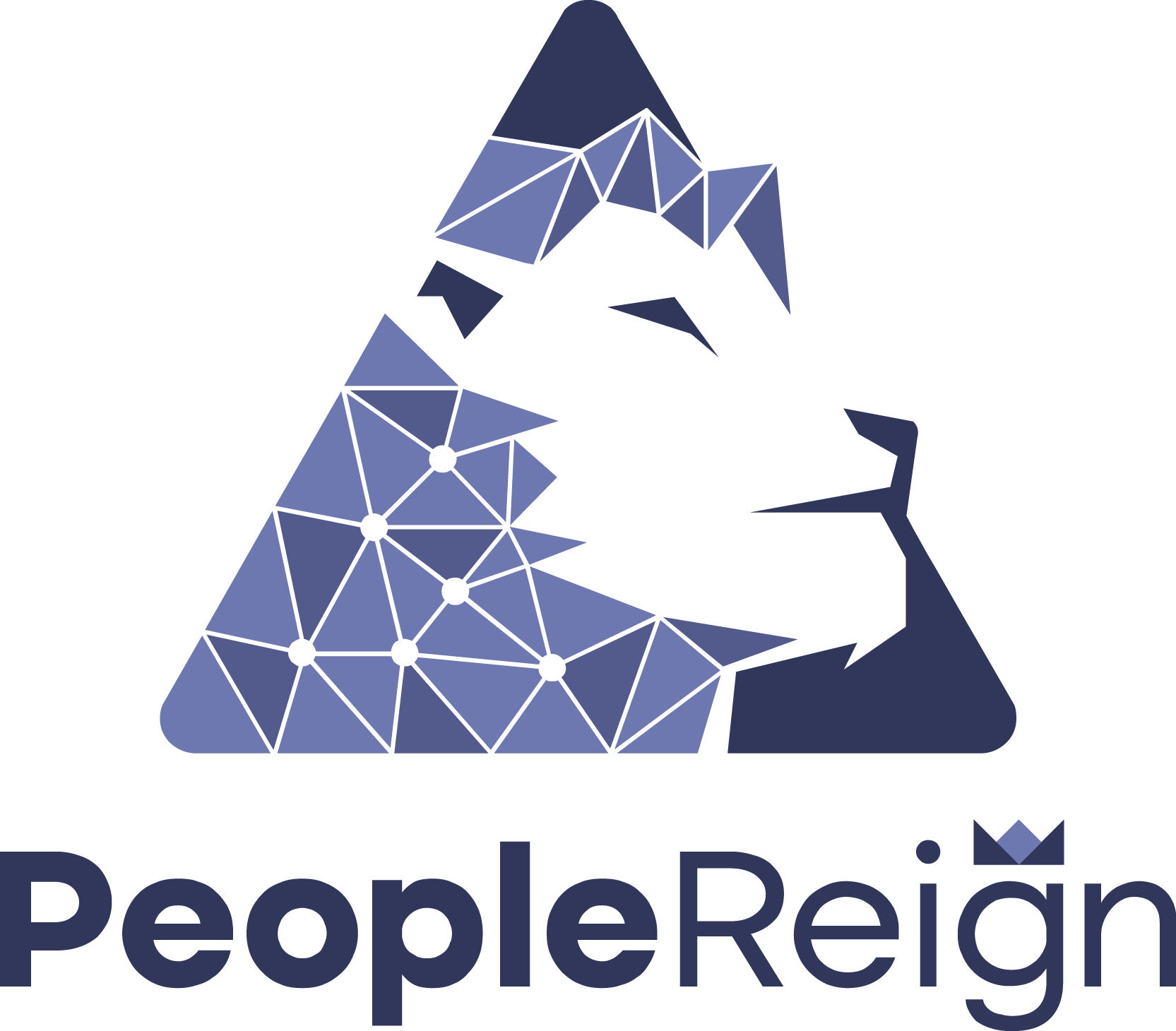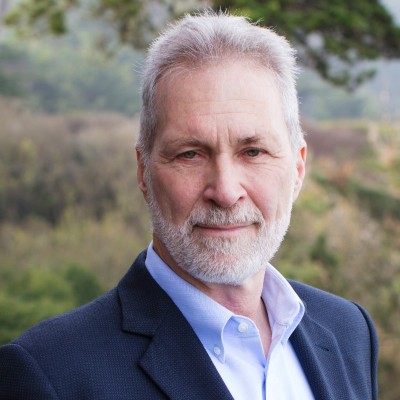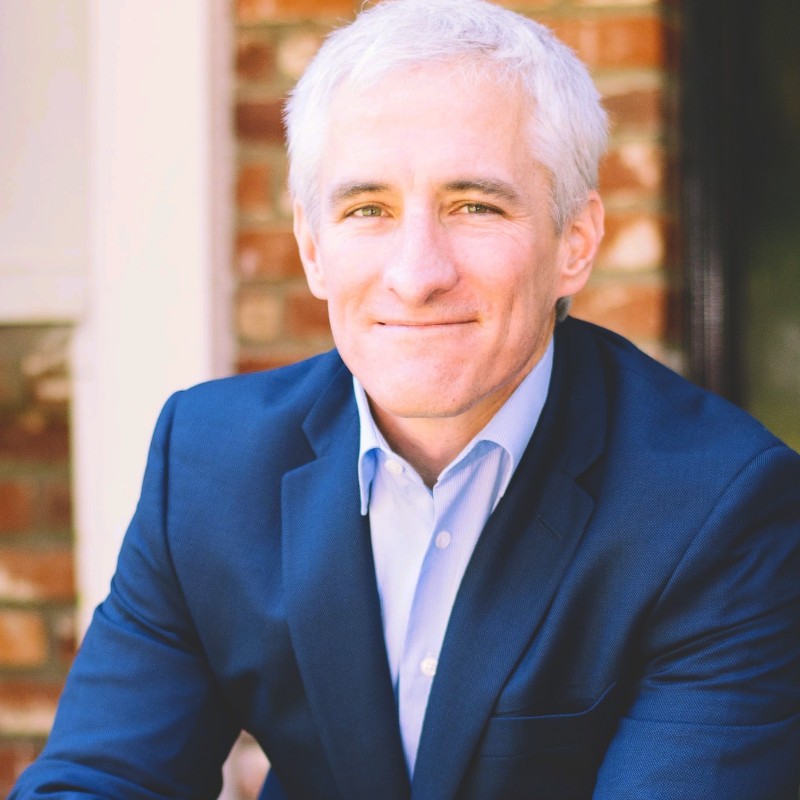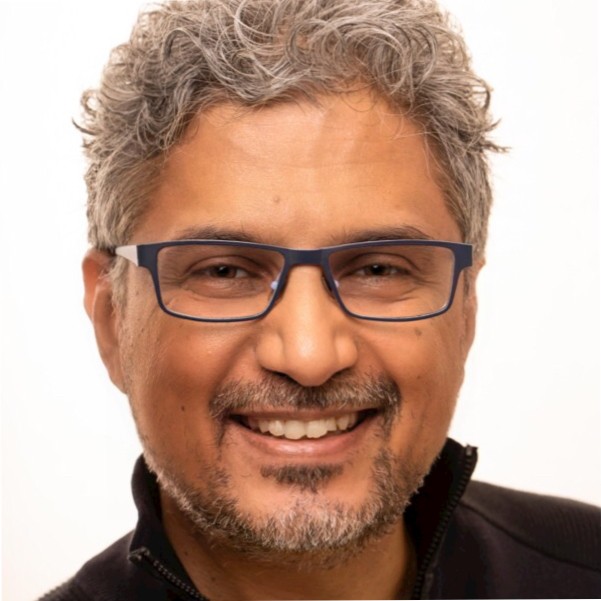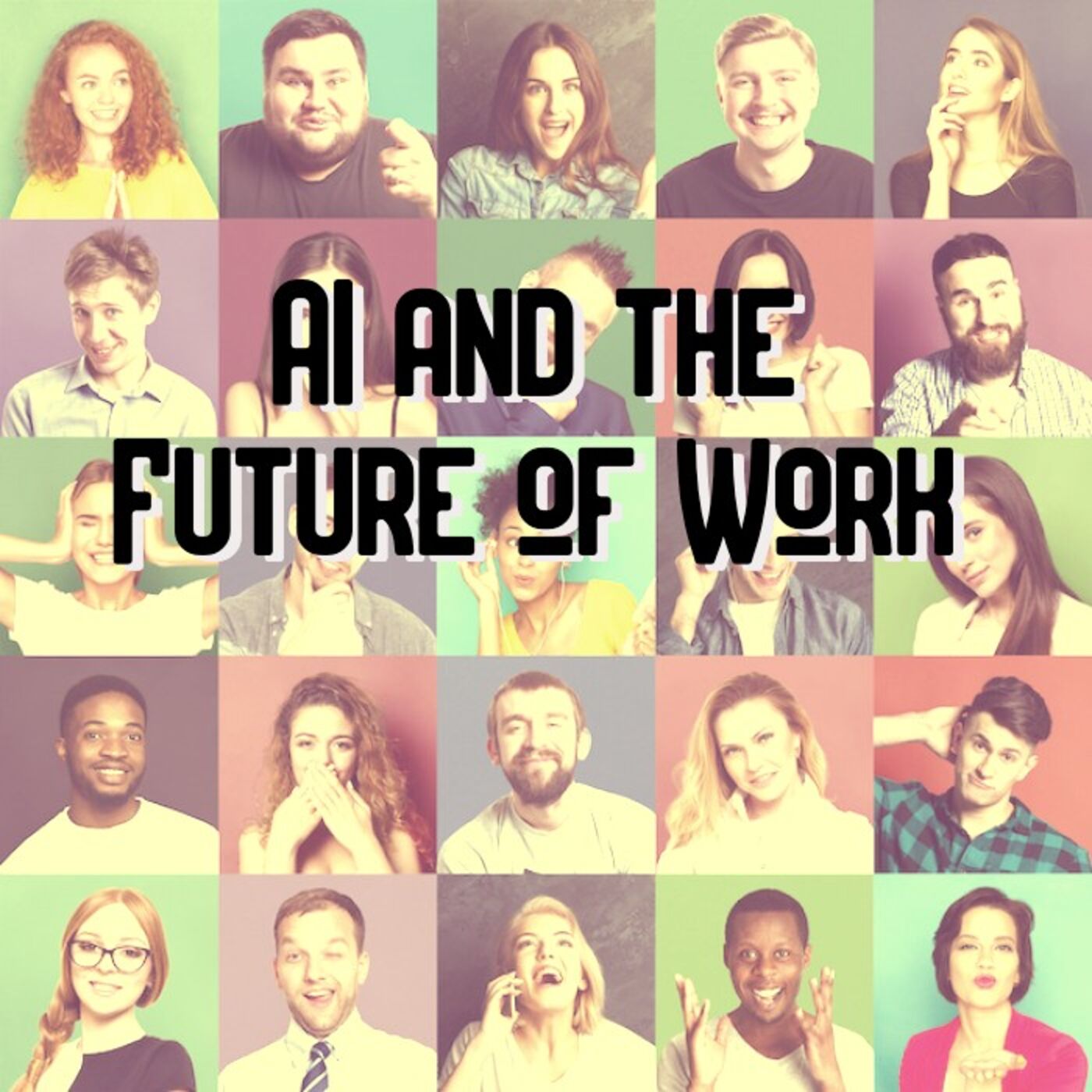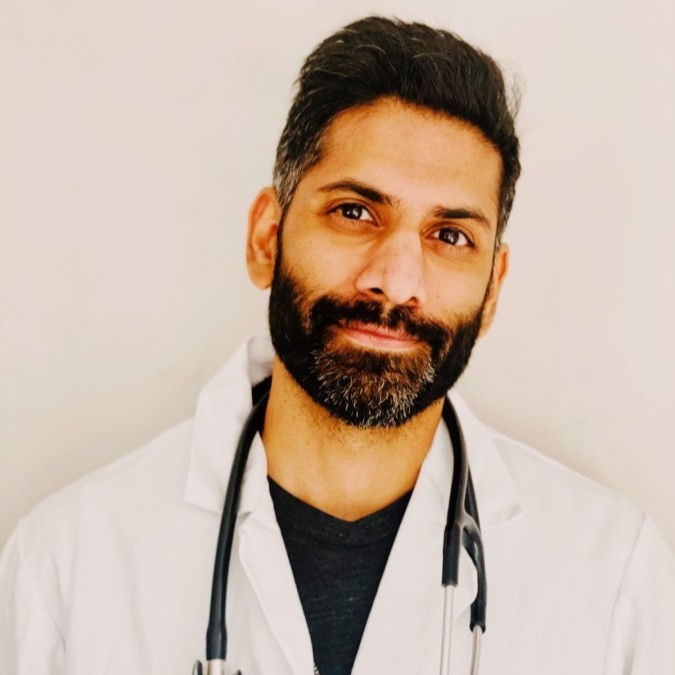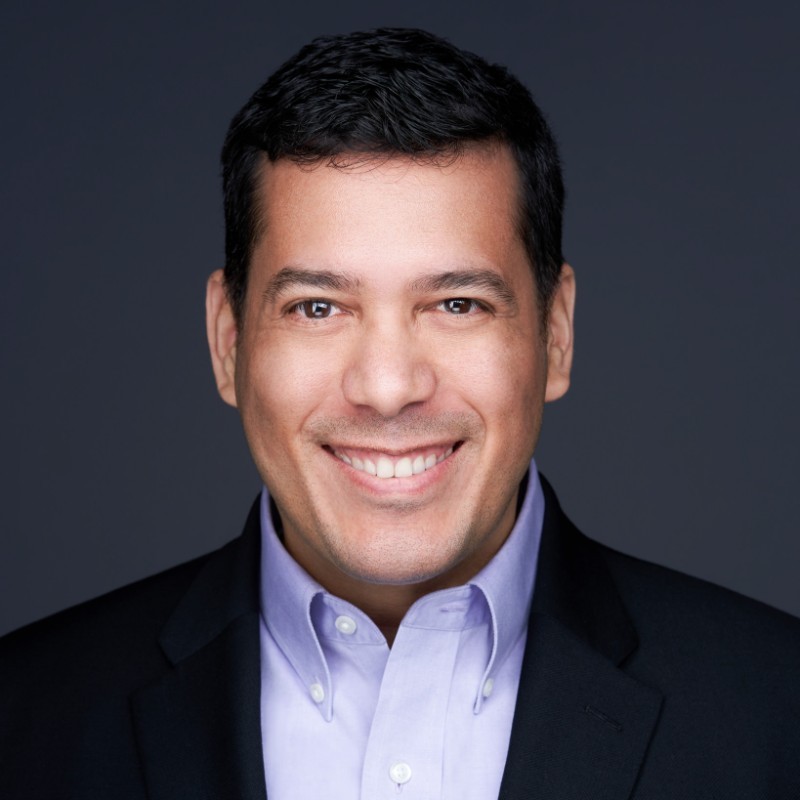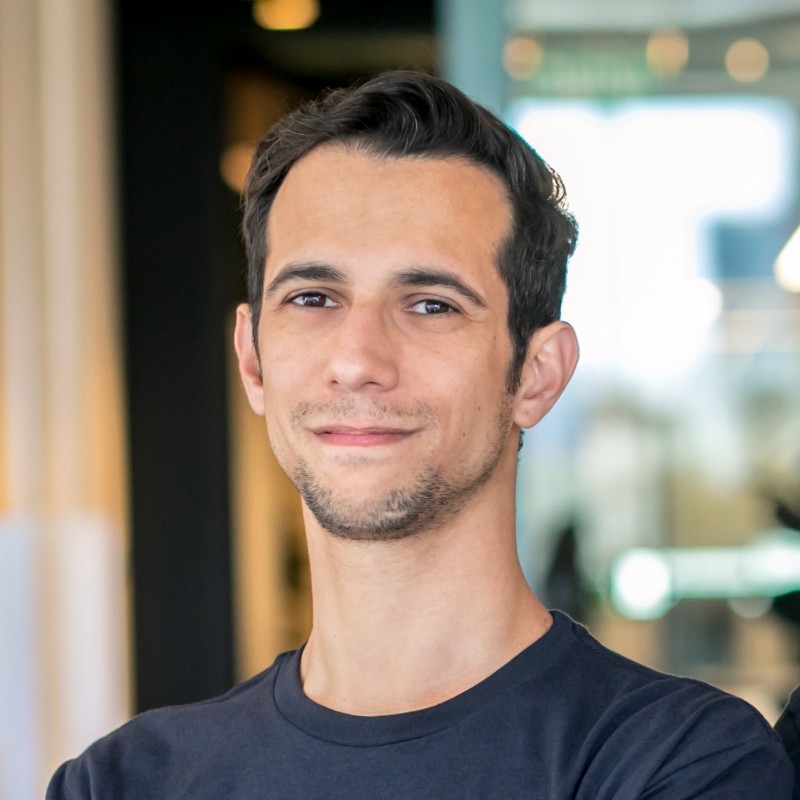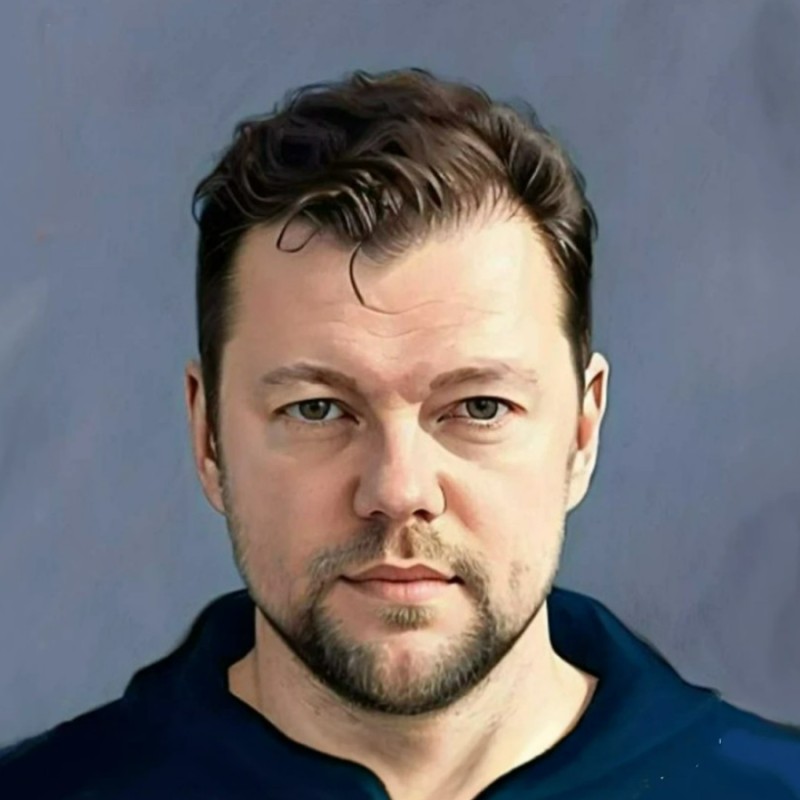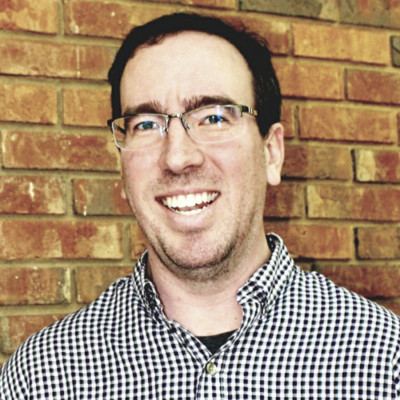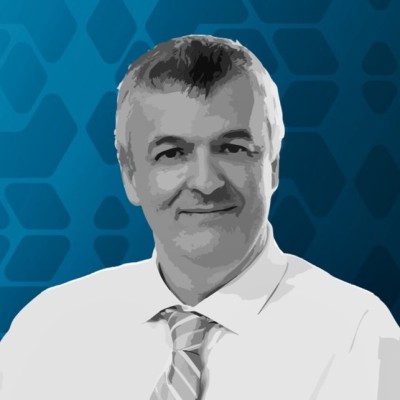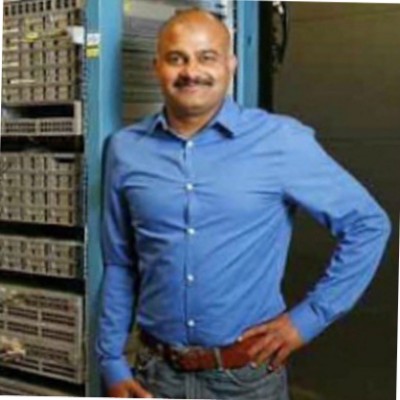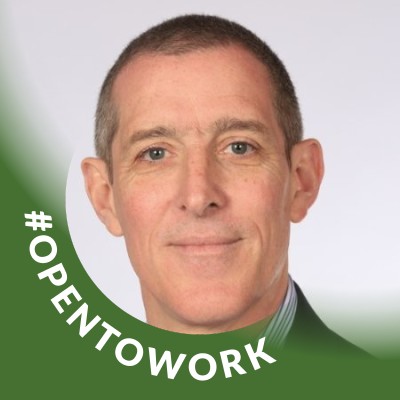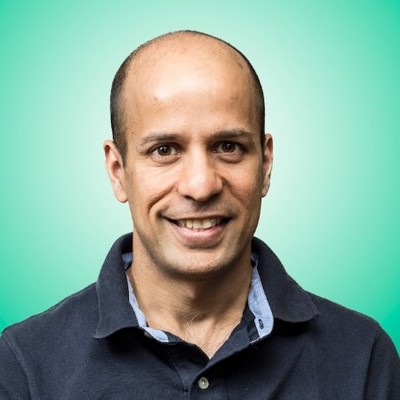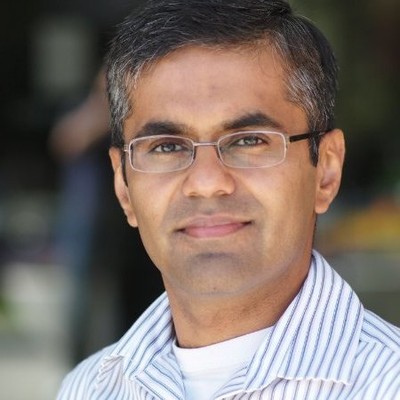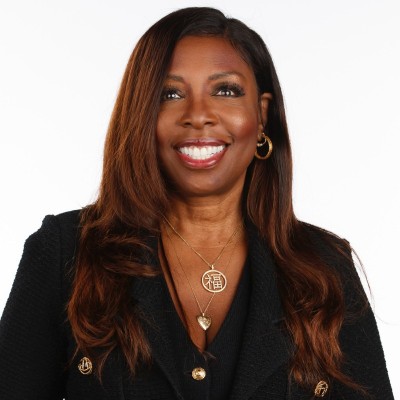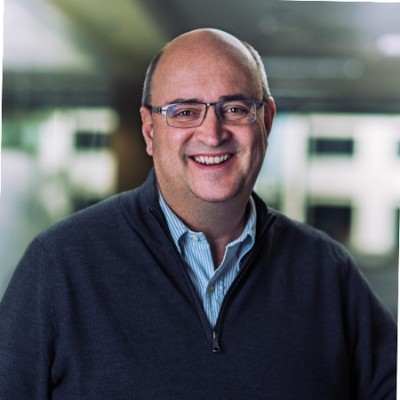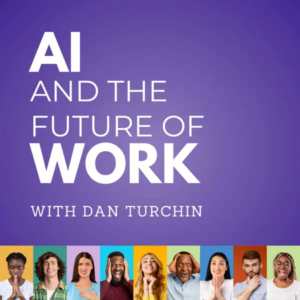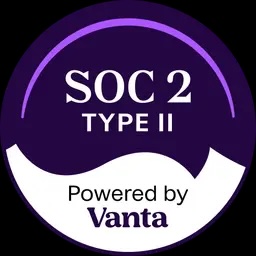AI and the Future of Work
-

Episode Number : 170
What does it mean to be human when your colleague’s a bot? Can AI ever truly understand us? This week, we’re thrilled to welcome Gary F Bengier, eBay’s first CFO and author of the award-winning novel, Unfettered Journey, as we dive into the future of work and the role of AI. Gary’s background in Silicon Valley and his understanding of AI and technology make him the perfect guest to shed light on the ethical implications of AI, the potential impact of large language models on business, and the crucial differences between symbolic software and large language models.
Show moreShow lessAs we unpack the World Economic Forum’s prediction that AI will generate 97 million new jobs while eliminating 85 million in the next three years, Gary and I contemplate the implications of machines and humans working together. We discuss the possibility that robots could eventually build robot factories, detaching the output of the economic system from labor hours, and explore the question of sentience in the age of advanced technology. Join us for an important conversation and peer into the mind of one of the great philosophers and technologists of our time.
Oh, and learn what Gary says is a better definition for the acronym “LLM” :).
References in this episode:
- Tiernan Ray on AI and the Future of Work
- Wow.. ChatGPT is very thirsty!
- The Santa Fe Institute
- Gary’s book Unfettered Journey
-

Episode Number : 169
The current Hollywood writers strike is the highest profile example of shifting dynamics in the entertainment industry. Studios are spending less to produce more content. Fees paid to writers have plummeted. Generative AI is only accelerating the trend. This has profound implications for the future of storytelling.
Show moreShow lessToday’s guest is an expert in the entertainment industry having founded Divisadero Pictures in 2011 to advise entertainment companies from Disney to Comcast to Microsoft on strategy and finance topics. Daniel Davila received his MFA from USC and his MBA from Stanford.
For historical perspective, today is only the second episode in more than 190 where we’ve discussed AI and the future of the work in the entertainment industry. For long-time listeners the last time was episode 87 back in April 21 with Michael Solomon and Rishon Blumberg, authors of Game Changer: How to be 10x in the Talent Economy, who managed Bruce Springsteen and John Mayer in a previous life.
Thank you to friend of the podcast Matthew Perez for the introduction to Daniel.
Listen and learn…
- The history of media consumption patterns
- The economics of the entertainment industry
- How AI is changing the entertainment industry
- How Daniel used generative AI tools to write a 70-page movie script
- Daniel’s pitch to Francis Ford Coppola about the role of AI in movie-making
- The impact of streaming on media production and consumption
- The bias inherent in text to image tools like Midjourney
References in this episode…
-

Episode Number : 168
Guru Banavar is the founding CTO of Viome where he helped raise $150M from a list of top-tier investors including Khosla Ventures and Bold Capital Group. Viome offers insights into health and disease using host and microbiome gene expression. Guru led the development of a first-of-a-kind saliva-based early detection system for oral and throat cancers which won the FDA’s designation as a breakthrough device.
Show moreShow lessPrior to Viome, Guru was a global VP & Chief Science Officer at IBM and the founding VP of the Watson AI Research team.
Guru has received many awards including a Leadership in Technology Management Award and a National Innovation Award from the President of India. He has published extensively and holds more than 35 US patents. His work has been featured in media outlets including the New York Times, the Economist, the Wall Street Journal, BBC, and NPR.
Listen and learn…
- Why our healthspan is more important than our lifespan
- How DNA to RNA transcription determines your health state
- How to sequence your mRNA to understand how to optimize your diet and predict disease risk
- What AI techniques can be used to develop personalized treatments
- How to use data that varies across patients to make automated decisions for all patients
- How Guru thinks about false positive prescriptions as a scientist when health and safety are at stake
- Where the FDA is regulating how AI is used to make healthcare recommendations
- Why it’s impossible to know the best diet for you without first understanding the composition of your microbiome
- How to use biomarkers to turn your biological fingerprint into a data problem
- Guru’s perspective on the ethical and philosophical implications of extending the healthspan
- How digital twins will help perfect the ability to engineer biology
References in this episode…
-

Episode Number : 167
Dr. Hyde , CEO and co-founder of Atropos Health, and Dr. Halamka, Mayo Clinic Platform President, discuss the future of AI in healthcare
Show moreShow lessDr. Hyde raised a $14M series in August 2022 from an exceptional group of investors including Breyer Capital and Emerson Capital.
Dr. Hyde is joined by an early user of Atropos, Dr. John Halamka, President of the Mayo Clinic Platform. Dr. Halamka has been developing and implementing healthcare information strategy and policy for more than 25 years. He specializes in artificial intelligence, the adoption of electronic health records and the secure sharing of healthcare data for care coordination, population health, and quality improvement. He was elected to the National Academy of Medicine in 2020.
For AI and the Future of Work trivia buffs this is one of only three episodes we’ve recorded with multiple guests. The last one with Tooso founders Ciro Greco and Jacopo Tagliabue was one of our most memorable.
Listen and learn…
- Why ChatGPT shouldn’t be used for medical diagnoses
- How Atropos uses healthcare data from the Mayo Clinic Platform combined with AI to assist caregivers
- How to use AI to automate the research that can otherwise takes weeks or months
- How the lack of access to data-driven recommendations leads to dangerous patient outcomes
- Who is responsible when AI makes a bad decision that adversely impacts a patient
- How to use NLP to remove PII to make it usable by AI (and certify data hygiene)
- The challenges of managing patient data at scale in a way that complies with HIPAA regulations
References in this episode…
-

Episode Number : 166
Dr. Shiv Rao is a cardiologist, teacher, former corporate VC, and the CEO of an exciting company that is changing how doctors help patients. Dr. Rao started Abridge in March 2018 to solve one of the biggest problems in healthcare. He has since raised $27M most recently in a $12.5M series A extension last August from leading investors, including Bessemer, Union Square, Wittington Ventures, and legendary AI pioneer Yoshua Bengio.
Show moreShow lessToday we explore what happens when AI automates the error-prone task of doctors taking notes during patient visits. It’s easy to imagine a world where quality of life improves because doctors are present, focused on patient outcomes, and able to develop more genuine human relationships while AI automates everything else.
Listen and learn…
- How much of a doctor’s time is spent not focused on patient care
- How AI can replace “pajama time” for doctors… and reduce burnout
- Why doctors require a 27-hour work day to deliver the quality of care patients expect
- How to use generative AI to assist doctors to capture better notes
- Who is responsible when AI makes mistakes that lead to incorrect diagnoses for patients
- Why AI won’t replace doctors… but doctors using AI may replace doctors not using it
- How Abridge reduces the risk of generative AI hallucinations
- How a design thinking lecture changed Dr. Rao’s life
References in this episode…
-

Episode Number : 165
Guillermo Corea is the Managing Director of the SHRM Workplace Innovation Lab and Venture Capital initiatives. He joined SHRM in 2015. He and his team are focused on finding and cultivating technologies that will impact the future of work. Guillermo’s team organizes the SHRM Better Workplaces Challenge Cup and Workplace Tech Accelerator plus they lead the organization’s impact investing program. Guillermo is a vocal leader in the HRTech community.
Show moreShow lessThis was a fun one because we got to record in person at SHRMTech 2023 in San Francisco. Only our fifth live recording in more than 190 episodes!
Listen and learn…
- How HR teams should drive workplace innovation
- Which Shark Tank shark is judging the Better Workplaces Challenge Cup
- How SHRM Labs connects tech entrepreneurs with HR leaders
- Why the CHRO is the most strategic exec in the C-suite
- How the pandemic and an aging employee population are creating opportunities for HRTech
- The technology Guillermo says will change work most in the next decade
- How to confront the problem of biased algorithms making HR decisions
- Why the HR blockchain will replace background check vendors
- The HRTech company Guillermo is ready to fund!
References in this episode…
-

Episode Number : 164
Daniel Marcous comes to fintech from an unconventional background. Before co-founding April he was the CTO for the Waze product at Google, the social traffic app originally called FreeMap Israel that was acquired by Google in 2013 for $1.3B. Daniel started his career as a data scientist in the Israeli Defense Force and actively gives back to the Israeli Data Science community through involvement with DataHack, DataLearn, and KaggleIL.
Show moreShow lessListen and learn…
- What Daniel learned at Google and Waze about scaling AI
- Why an Israeli data scientist left Google to start a company automating tax filing for Americans
- Why doing taxes is like finding the best route on a map
- Why continuous tax planning is the future of personal finance
- How to manage consumer data responsibly… and still use it to train AI models
- Why the U.S. tax code is so complicated
- Why ChatGPT will never do your taxes
- When AI will replace CPAs
- Daniel’s favorite cocktail
References in this episode…
-

Episode Number : 163
Artem and his team developed an app that listens in on virtual meetings and does all the note-taking for you including recommending action items and suggesting the most important topics. These are hard AI problems to solve and Sembly’s success is an indication they’re off to a great start.
Show moreShow lessBefore Sembly, Artem was an executive and co-founder at companies including Neusana and Visual Trading Systems and he spent time as a manager in big company land at Ernst & Young.
Listen and learn…
- Why Artem and his co-founder decided to fix the problem of broken meetings
- Why the evolution of online meetings… is like the evolution of airplanes
- Why we’ll soon send AI agents to attend meetings on our behalf
- When meetings are required… and how to make them more efficient
- How neural nets are solving traditional voice transcription problems related to accents and background noise
- How to solve the problem of automatically determining who said what in a conversation
- How Sembly uses generative AI to summarize meetings
- What are the risks of having AI decide what tasks to assign to meeting participants
- How to prevent sensitive information from being passed to large language models as training data
References in this episode…
-

Episode Number : 162
Today’s guest is one of the most recognized investors and thought leaders in the conversational AI community. Bradley Metrock is the CEO of Project Voice, author of the popular Substack newsletter This Week in Voice with more than 30,000 subscribers, and a General Partner at Project Voice Capital Partners. Congrats to Bradley and the team on their recent announcement of their new rolling fund.
Show moreShow lessBradley’s a proud citizen of the Volunteer State of Tennessee. Fair warning: you may be ready to move to Chattanooga after today’s conversation. Oh, and he’s also an ironman in the world of podcasting having just launched season eight of This Week in Voice, a podcast he launched in 2017. We’re on about episode 180 of this podcast going back to 2019 so I admire Bradley’s stamina.
Listen and learn…
- Where there’s opportunity for entrepreneurs to innovate in conversational AI
- How conversational AI is changing quick-serve restaurants, contact centers, banking, and hospitality
- How Bradley evaluates new pitches at Project Voice Capital Partners
- How Bradley defines voice technology in his market map
- Is voice the new app… or perhaps the “original app”
- Why generative AI is so disruptive
- Should we be concerned about voice assistants like Siri and Alexa listening in on our conversations
- What jobs will AI create over the next decade
- Bradley sells the great state of Tennessee to entrepreneurs establishing roots outside a coastal state
References in this episode…
- Lance Eliot describes the risk of sharing your data with ChatGPT
- Applied Brain Research, a Project Voice Capital Partners investment
- Bradley’s voice technology market map
- The Blueprint for an AI Bill of Rights
- Project Voice 2023
-

Episode Number : 161
Ken Wenger is the author of the forthcoming book Is the Algorithm Plotting Against Us?: A Layperson’s Guide to the Concepts, Math, and Pitfalls of AI. I’ve been reading it and it is excellent. Ken is a deep thinker and a great writer. He’s also the senior director of research and innovation at CoreAVI and chief technology officer at Squint AI.
Show moreShow lessHis work focuses on the intersection of artificial intelligence and determinism, enabling neural networks to execute in safety critical systems. Kenneth has co-authored two articles in the scholarly journal Machine Learning with Applications and several white papers for different publications, including Embedded Computing Design. He also holds several patents under CoreAVI’s auspices.
Listen and learn…
- How neural nets emulate the brain to make decisions
- Why we have to be careful when using the term “intelligence” to describe “AI” systems
- When Ken trusts machines to make decisions… and when he doesn’t
- Why LLMs like ChatGPT “hallucinate”
- How generative AI replicates human bias
- Why Ken feels “if we haven’t addressed ethical issues we’re not ready to deploy AI solutions”
- What AI explainability is and why it’s important
References in this episode…
-

Episode Number : 160
Bob Rogers, AI pioneer, entrepreneur, and author started Oii in 2019 to automate supply chain design. The company uses advanced modeling and AI to optimize supply chain planning and automate the configuration of complex networks. Bob started his career as a Harvard physicist using neural networks to measure activity near black holes in deep space.
Show moreShow lessDuring his 35 year career Bob has been a trailblazer in using AI to solve complex problems. He’s also an Expert in Residence for AI at UCSF Smarter Health and was Chief Data Scientist in the Data Center Group at Intel as well as co-founder and Chief Scientist at Apixio, a Healthcare AI company.
Additionally, he co-authored the books Artificial Neural Networks: Forecasting Time Series and “De-mystifying Big Data and Machine Learning for Healthcare“. Bob received his BA in physics at UC Berkeley and his PhD in physics at Harvard.
Listen and learn…
- How neural nets work… from a pioneer
- What it was like to co-author a book with ChatGPT
- What surprised Bob most when he tested the boundaries of ChatGPT
- Why ChatGPT spews credible nonsense
- The ethics of using generative AI to sell content derived from copyrighted materials
- Why ChatGPT became an instant global phenomenon
- How OpenAI trained ChatGPT “to be nice”
- Is there another “AI winter” ahead?
References in this episode:
- The book Bob co-authored with ChatGPT
- Can AI be an author of a publication in a scientific journal?
- Bob’s previous book: Demystifying AI for the enterprise
- Stanford’s Dr. Fei-Fei Li in conversation with OpenAI CTO Mira Murati
- Futurists Peter Scott and David Wood on AI and the Future of Work
- Bob’s company: Oii.ai
-

Episode Number : 159
Cisco got its start in 1984 connecting computers at Stanford University to form the first local area network. Other than maybe Microsoft or Apple, it’s easy to argue Cisco has had more influence on the growth of the internet, and by extension, the modern world, than any other company. 15 years after Cisco started today’s guest was hired to begin what would become a legendary career.
Show moreShow lessNearly 25 years later JP Vasseur has changed the world again and again. In the process, he has been recognized as the #1 inventor at Cisco with 600 patents to his name. He has authored or co-authored 35 standards, published three books on internet technologies, and has been recognized as a Cisco Fellow, a prestigious title awarded to the top few most-distinguished technical leaders at the company. Today we learn from a living legend about the past, present, and future of technology.
Listen and learn…
- How AI at Cisco has evolved in the past 12 years
- Disruptive vs. incremental innovation
- How predictive networks learn
- The design principle JP used when designing the first predictive network
- The challenges of predicting outages using unsupervised vs. supervised machine learning
- JP’s process for innovating like a startup within Cisco
- Innovation in networking we can expect in the next decade
- JP’s best memory from the early days of Cisco
References in this episode:
-

Episode Number : 158
Navindra Yadav is the co-founder and CEO of Theom, the cloud data security leader. He and the team recently raised a $16M series A from an impressive group of investors including Microsoft’s M12 venture fund and Ridge Ventures. Prior to Theom, Navindra was the founder and CEO at Tetration and prior to that he was a distinguished engineer at Cisco. Navindra’s work has received more than 182 patents.
Show moreShow lessFor full disclosure, Dan is an investor in Theom. Thanks to Patty Hatter, great former guest, for introducing us to Navindra.
Listen and learn…
- What CISOs least understand about the security of enterprise data
- Why CASBs (Cloud Access Security Brokers) are inherently vulnerable
- The hardest technical problem Theom has solved
- How to assign a “criticality score” to data
- How to use NLP (natural language processing) to detect PII (personally identifiable information)
- How to protect from unauthorized data access through social engineering
- Why data stores like Snowflake, Databricks, and Confluent don’t already monitor data inappropriately leaving their platforms?
- When consumers will be able to trust that data they provide SaaS vendors is secure.
- The security startup Navindra and Dan are ready to fund!
References in this episode…
-

Episode Number : 157
We often discuss the future of work for enterprise employees. What technology will they use, how will people and machines interact, and how teams will be organized when geography and language are no longer barriers. Few have spent more time in and around enterprise service management than today’s guest and few are better qualified to share insights about what’s ahead.
Show moreShow lessAndi Mann has been a technology leader in technology companies around the world since the 90s. He founded Sageable, the digital transformation advisory services practice, in 2015 and has also recently served in roles that include CTO for DevOps at Splunk and VP Products and Strategy at CA which is now part of Broadcom. Andi and I both did time at BMC Software in the early 2000s. Andi is the author of multiple books including The Innovative CIO, he’s a sought after speaker, and tech provocateur who is never shy about what’s wrong with IT and where the world of digital is headed.
Thanks to friend of the podcast Steve Kaplan for the intro to Andi.
Listen and learn…
- Why Andi summarizes his career this way: “I make computers do more work to allow people to do more creative things”
- The best use of enterprise AI Andi has seen
- How Andi helped an industrial transportation company save a billion dollars
- Why “less complex systems can’t understand more complex systems”
- Why the best use of AI is targeting “known knowns” by augmenting vs. replacing human intelligence
- How to overcome the lack of trust in AI
- Why AI won’t eliminate any jobs… and why it will create many new ones
- Skills to invest in today that will never be replaced by automation
References in this episode…
-

Episode Number : 156
Meredith Broussard is one of the most visible, vocal leaders in the emerging field of algorithmic accountability. Professor Broussard is a data scientist and Associate Professor at NYU whose research focuses on AI in investigative reporting and using data analysis for social good. Meredith is the author of Artificial Unintelligence: How Computers Misunderstand the World and the forthcoming More Than a Glitch: Confronting Race, Gender, and Ability Bias in Tech.
Show moreShow lessAmong other things, Professor Broussard was featured in the seminal documentary Coded Bias. Today’s discussion is about one of the most important topics in our field and in this episode, we explore it with someone whose name is on a shortlist of AI ethics pioneers. You’ve heard me say repeatedly that coursework in AI ethics should be required for every student graduating with a technical degree. Here’s why!
Listen and learn…
- How AI reveals bias encoded in society
- Why it’s important to always ask “what could go wrong”
- What is the new field of “algorithmic accountability reporting”
- What the Blueprint for an AI Bill of Rights may mean for bad acting companies
- What’s the right role for the federal government in AI regulation
- How to assign an “accountability score” to algorithms
- The ethical issues related to AI we’ll be discussing in a decade
References in this episode…
- More Than a Glitch, Professor Broussard’s new book… and her “love letter” to an amazing group of women who are pioneers in the emerging field of algorithmic accountability
- Professor Broussard’s personal website
- The racist soap dispenser
- Joy Buolamwini’s Algorithmic Justice League
- Rumman Choudary, formerly head of the META team at Twitter
- Cathy O’Neil’s ORCAA
- The ethical judgments built into generative AI models
- Google’s “stochastic parrots” debacle
- The Agnes Irwin School outside Philadelphia
-

Episode Number : 155
Arvind Jain , Glean CEO and Rubrik co-founder, started Glean in March 2019 to make it easier to find answers strewn across myriad SaaS apps. Prior to Glean, Arvind had an incredible run at data security company Rubrik which he co-founded in 2014. Prior to Rubrik Arvind was a distinguished engineer at Google. Glean became a unicorn last year having raised $100M in May from a list of iconic investors including Lightspeed, General Catalyst, Kleiner Perkins, and Sequoia.
Show moreShow lessEnterprise search is one of the best examples of a field that was in desperate need of disruption. In this episode, we meet one of the disruptors.
Listen and learn…
- Where there’s a gap in traditional search technology including Google
- How to retrieve the best answers across hundreds of SaaS apps
- How to understand what users need even when they don’t know the right way to ask for it
- How to use LLMs like ChatGPT to improve search accuracy
- How products like Alexa and Siri are teaching us to ask questions using natural language rather than searching with keywords
- How to personalize enterprise search without improperly using user data
- What is the future of knowledge management
References in this episode…
-

Episode Number : 154
Parul Saini has been a technology leader at tech-first companies like Zuora, Splunk, and Uber for more than a decade in roles with increasing responsibility.
Show moreShow lessShe has had a birdseye view of AI tech trends and the future of work. In her current role at Uber, her service portfolio includes contact center, employee productivity, and identity management applications.
Today, we learn from an expert how to manage enterprise apps that support thousands of employees for a rapidly growing global company.
Listen and learn…
- Why “empathy” is the baseline for IT
- How to hire and retain IT talent
- How to navigate the dual challenges of being a technology leader and people manager simultaneously
- How to use AI to increase the velocity of hiring decisions
- Why great CIOs… are also great at sales and marketing
- What Parul has learned from Shantanu Narayen, Adobe CEO, and Dara Khosrowshahi, Uber CEO
- One thing only Uber insiders know
- Parul’s advice for aspiring female IT leaders
References in this episode…
-

Episode Number : 153
Binny Gill started his career as a programmer after studying CS and Engineering at IIT Kanpur and later UIUC, University of Illinois Urbana-Champaign.
Show moreShow lessHe then had an impressive eight-year run as a technology leader at Nutanix, the hyper-converged infrastructure company, eventually becoming its CTO for cloud services. In January 2021, Binny left Nutanix to start Kognitos based on a bold vision to make everyone a programmer. In this discussion, we learn about his journey and how generative AI just may change everything.
Thanks to Steve Kaplan for the intro to Binny.
Listen and learn:
- Binny’s inspiration for starting Kognitos: “…why should humans need to think like machines… when machines can now think like humans?”
- What makes programming so hard.
- Why the future of programming is using natural language to describe the features you want.
- How computing interfaces restrict us from communicating like humans when programming.
- Why Binny says “generative AI is the new electricity.”
- The most important leadership lesson Binny learned working alongside iconic leaders at IBM.
References in this episode:
-

Episode Number : 152
Today’s guest belongs on the Mt. Rushmore of amazing female leaders we’ve interviewed on this podcast. Daphne and I met in November while co-presenting at the HMG Strategy event in New York City.
Show moreShow lessDaphne’s energy is infectious. Her passion for inspiring leaders was obvious on stage and even more obvious when we met afterward. Daphne’s new book Win When They Say You Won’t: Break Through Barriers and Keep Leveling Up Your Success became an instant best seller. Listen to this one, and you’ll understand why.
Before becoming an author, Daphne started The Board Curators to help others prepare for serving as paid company directors. She serves on numerous boards, including AMN Healthcare and Masonite International. Earlier in her career, Daphne was a serial CIO serving in IT leadership roles at companies including IBM, Johnson & Johnson, Pfizer, and GE Healthcare.
Listen and learn…
- Daphne’s remarkable path from poor kid in rural Illinois to global CIO
- How to overcome racial bias as a black female
- The subtle ways bias infiltrates organizations
- Where imposter syndrome originates… and how to conquer it
- How to “version your life” to adopt a growth mindset
- How to use Daphne’s EDIT process to achieve your goals
- Why DEI “won’t be a thing any more” in a decade
References in today’s episode…
-

Episode Number : 151
This is one of my favorite episodes of the year. It’s our third annual long, strange trip into the mind of a Silicon Valley legend. Dave Kellogg is one of the best marketers, CEOs, tech provocateurs, and board whisperers around.
Show moreShow lessHe was an executive at iconic companies like SAP, MarkLogic, and Salesforce turned investor and board director who is now an executive in residence at Balderton Capital.
In this episode, we discuss, well, just about everything that matters for the tech economy… startup growth metrics, generative AI, how to get funded in 2023, and of course, our favorite jam band.
Listen and learn:
- What Dave got right… and not so right… in his 2022 predictions
- How startups can survive downturns
- How to fix the problems at Salesforce, Amazon, and Facebook
- What single theme will characterize 2023 in Silicon Valley
- What will happen to startups that raised massive rounds in 2021
- Why virtual companies won’t outperform companies built around hubs in tech centers
- What’s ahead for consumption-based pricing and PLG
- Why generative AI poses an existential threat to Google
References in this episode:
- Dave’s (excellent) blog
- Peter Fishman, Mozart Data CEO, on AI and the Future of Work
- Derek Steer, Mode co-founder, on AI and the Future of Work
- How ChatGPT can detect Alzheimer’s disease
